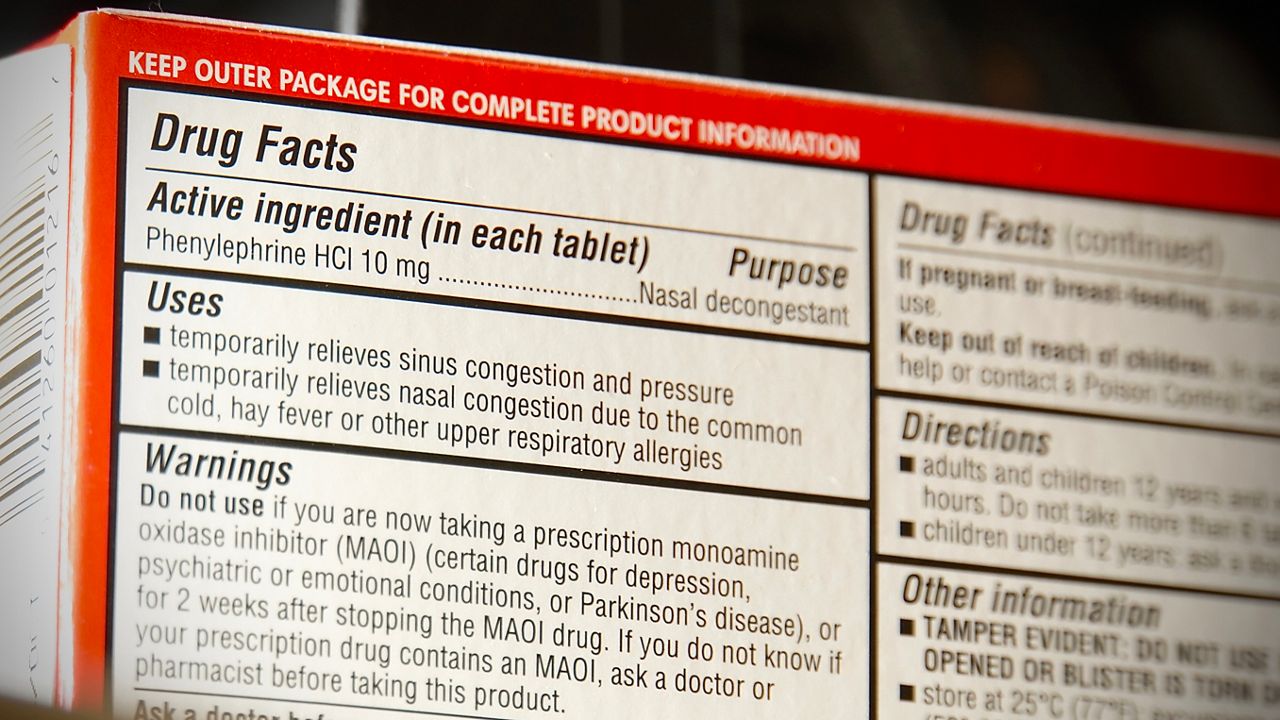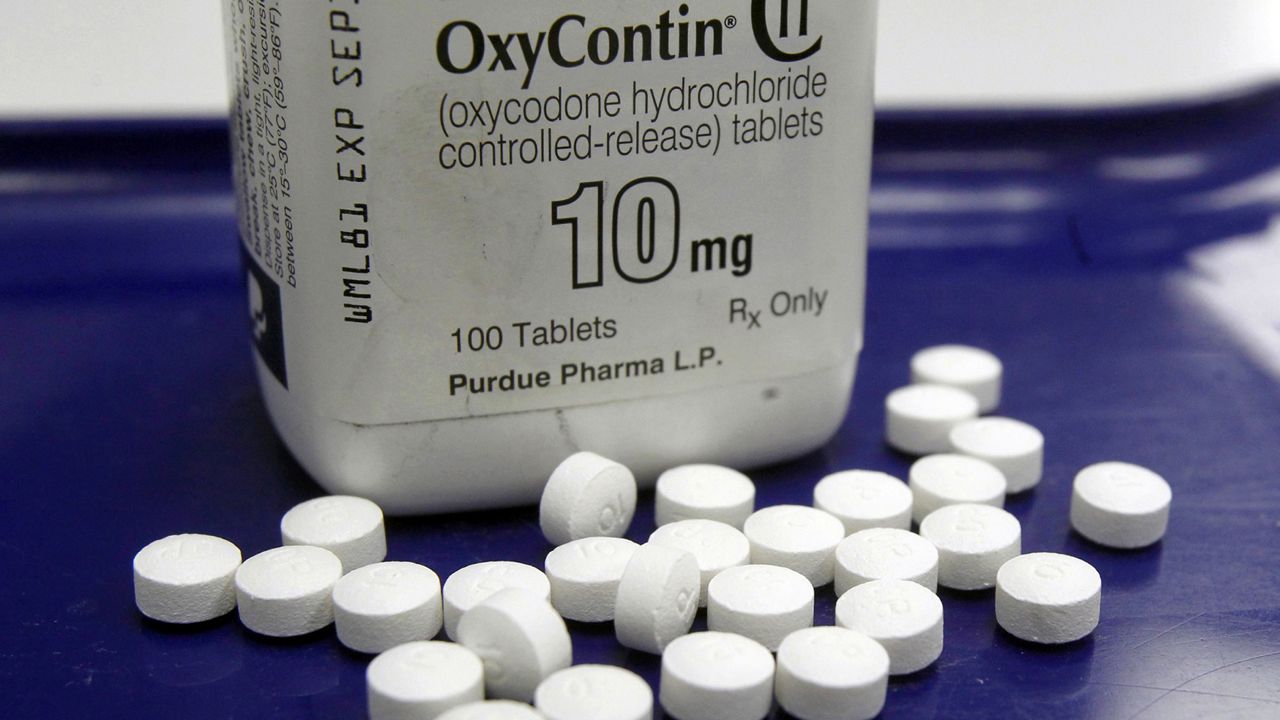The Food and Drug Administration announced Thursday it is seeking to ban the ingredient oral phenylephrine in over-the-counter nasal decongestants.
What You Need To Know
- The Food and Drug Administration announced Thursday it is seeking to ban the ingredient oral phenylephrine in over-the-counter nasal decongestants
- The proposal is in response to new research showing the ingredient is ineffective when taken as a pill or syrup
- The FDA stressed there are no safety concerns associated with the drugs
- Oral phenylephrine is found in versions of cough and cold drugs such as NyQuil, Benadryl, Sudafed and Mucinex
The proposal is in response to new research showing the ingredient is ineffective when taken as a pill or syrup. The FDA stressed there are no safety concerns associated with the drugs.
Oral phenylephrine is found in versions of cough and cold drugs such as NyQuil, Benadryl, Sudafed and Mucinex. In some medicines, it is the lone active ingredient, while in others it is used in combination with other ingredients, including acetaminophen or dextromethorphan.
“It is the FDA’s role to ensure that drugs are safe and effective,” Dr. Patrizia Cavazzoni, director of the FDA’s Center for Drug Evaluation and Research, said in a statement. “Based on our review of available data, and consistent with the advice of the advisory committee, we are taking this next step in the process to propose removing oral phenylephrine because it is not effective as a nasal decongestant.”
In September 2023, the FDA’s Non-Prescription Drug Advisory Committee concluded that newly available data did not support the agency’s recommendation for phenylephrine as an effective decongestant. Researchers found that less than 1% of the ingredient is absorbed into the bloodstream.
In response, the pharmacy chain CVS pulled from its shelves decongestants in which oral phenylephrine is the only active ingredient.
The FDA is proposing to remove oral phenylephrine from its list of ingredients that drugmakers can use in over-the-counter nasal decongestants. Nasal sprays that include phenylephrine would not be affected.
The proposal will be open to public comment before the agency makes a final determination. In the meantime, companies can continue selling and marketing the drugs.
The Consumer Healthcare Products Association, the trade group that represents the makers of consumer health care products, said in a statement it is “disappointed in FDA’s proposal to reverse its long-established view of oral PE [phenylephrine].”
“For decades, people have relied on oral PE to relieve their nasal congestion,” the CHPA said. “ … “This proposed change is at odds with previous FDA decisions and Advisory Committee recommendations.”
The trade association argued the new data “should be considered in the context of the full weight of available evidence, not as a complete replacement of the previous body of evidence.”
The FDA said if it moves forward with banning oral phenylephrine, it would provide manufacturers enough time to reformulate their drugs or remove them from the market.
Dr. Theresa Michele, director of the FDA’s Office of Nonprescription Drug Products, said consumers should know “a range of safe and effective drugs and other treatments is available to temporarily relieve congestion symptoms due to allergies or a common cold.”









